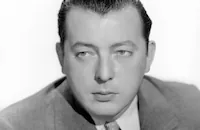Guest in the House
Cast & Crew
John Brahm
Anne Baxter
Ralph Bellamy
Aline Macmahon
Ruth Warrick
Scott Mckay
Film Details
Technical Specs

Synopsis
Aunt Martha Proctor recalls to herself the evil that invaded her family's home, causing her to take desperate measures: One summer day, the Proctor family anxiously awaits the arrival of Dr. Dan Proctor and his invalid fiancée, Evelyn Heath. Dan's elder brother Douglas, a commercial illustrator, and his wife Ann are sympathetic toward Evelyn, whose troubled childhood spent under the dominance of an alcoholic father scarred her physically and emotionally. Upon arriving, the frail Evelyn is introduced to Douglas, Ann, their daughter Lee, houseguest Ernest Hackett, Aunt Martha and Douglas' model, Miriam Blake. Complaining of exhaustion, Evelyn then retires to her room and plays the melancholy strains of "Liebestraum" on the phonograph. That evening, Evelyn's shrieks pierce the house when Lee shows her a pet bird. Evelyn harbors a hysterical fear of birds, and to calm her, Douglas sketches her picture on the lampshade. After he leaves her room, Evelyn opens her diary and expresses her disdain for Dan and desire for Douglas. That Sunday, as the rest of the family attends church, Miriam and Douglas work in his studio. Desiring to be near Douglas, Evelyn is about to intrude on them when Dan returns unexpectedly from the hospital, and she accuses him of being insanely jealous of her. When Evelyn insists that Dan return to work, he meekly packs his suitcase and leaves. Envious of Miriam's relationship with Douglas, Evelyn next plots to exile her. She begins by poisoning Lee's mind against Miriam, leading the little girl to believe that Miriam is romantically linked with her father. When Lee passes her fears along to Hilda, the maid, Hilda tells John, the handyman, and Martha overhears the gossip. As a result, Martha suggests that Douglas take a vacation and send Miriam back to the city, but he ignores her. One afternoon, Douglas and Miriam drive to the train station to pick up a delivery of turpentine. When the two return home inebriated, long after dark, Hilda, scandalized, quits, and Ann questions her husband about his relationship with Miriam. Offended that his wife no longer trusts him, Douglas refuses to respond. When Miriam approaches Ann to explain, Ann slams the door in her face, causing Miriam to resign and leave the house. Evelyn then eagerly volunteers to take Miriam's place and Douglas naïvely hires her. One day, during a summer storm, Hackett returns to the house, having been alerted to the situation by Miriam. As Ann laments Douglas' heavy drinking, Lee descends the stairs, exhibiting Evelyn's neurotic symptoms. Realizing that Evelyn has sown the seeds of dissension in the Proctor household, Hackett urges Ann to force her to leave the house, but when Ann asks Evelyn to move in with Martha, Evelyn viciously accuses her of jealousy. When Douglas returns home, Evelyn hurls hysterical accusations at Ann and then breaks down in tears. Blaming Ann for Evelyn's condition, Douglas denounces her and storms out of the house. After gleefully watching Ann pack her bags and leave, Evelyn destroys the farewell note that Ann has left for Douglas. Soon after, Douglas returns, filled with recriminations, and becomes horrified when Evelyn begins to fantasize about their future together. Hurrying after Ann, Douglas apologizes, and they return to the house together. There, Douglas informs Evelyn that he is sending her to a sanitarium and instructs her to break off her engagement to Dan. Later, Evelyn phones Dan and the next morning, he appears, and Evelyn proposes that they immediately marry. Dumbstruck, Douglas finds the diary that Evelyn has placed on the desk and reads a passage describing her love for him. When Evelyn smugly suggests that Douglas read the last page, he turns to it and finds a passage denouncing her love for him. Convinced of Evelyn's sincerity, Dan decides to marry her and goes to pack some things. After he leaves, Evelyn stumbles upon Lee's empty birdcage, unaware that the bird recently died. When Evelyn becomes hysterical, Martha taunts her that the bird is flying free in the house. Panicked, Evelyn runs out screaming and plunges to her death from a cliff.

Cast

Anne Baxter

Ralph Bellamy

Aline Macmahon
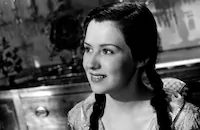
Ruth Warrick
Scott Mckay

Marie Mcdonald
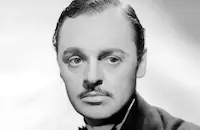
Jerome Cowan

Margaret Hamilton
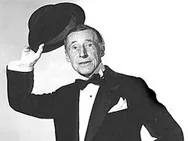
Percy Kilbride
Connie Laird
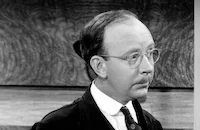
Hobart Cavanaugh
Jimmy Brady
Milton Kibbee
Crew
Ketti Frings
Lee Garmes
Walter Hannemann
Richard Irvine
Werner Janssen
Franz Liszt
William Lynch
Edward Nelson
Sam Nelson
James E. Newcom
Jack Noyes
Nickolai Remisoff
Hunt Stromberg
Natalie Visart
Jack Voglin
Harry Webb
Ern Westmore
William H. Wilmarth

Film Details
Technical Specs

Award Nominations
Best Music, Original or Comedy Series
Articles
Ruth Warrick (1915-2005) - Ruth Warrick, (1915-2005)
She was born on June 29, 1915 in St. Joseph, Missouri. After attaining a degree in theatre from the University of Kansas City, she left for New York, where in 1938, she joined the Mercury Theater troupe, headed by a young artist on the rise by the name of Orson Welles. When Welles prepared to film Citizen Kane (1941) he took several players from his Mercury Theater (Joseph Cotten, Everett Sloan, Agnes Moorehead) and of course, Ruth Warrick. She made her film debut in Welles' cinematic epic as Emily Norton Kane. Indeed, to many film buffs, Warrick's icy charms are indispensable to the celebrated montage sequence opposite Welles at the breakfast table; particularly when he broaches the subject of her husband's infidelity:
Emily Kane: Charles, people will think...
Charles Kane: What I tell them to think!
Warrick received fine reviews for her performance, and she had good roles in her next two films The Corsican Brothers (1941), with Douglas Fairbanks Jr., and Journey Into Fear (1942), opposite Joseph Cotton. Sadly, Hollywood, not knowing what to do with a well-trained, mature actress like Warrick, began to cast her into routine, forgettable fare: Mr. Winkle Goes to War (1944), China Sky (1945), and Swell Guy (1946). Disney's Song of the South (1947), was a box-office hit, and was her best film in a while, but overall, the material she received over the next few years, simply wasn't worthy of her talents.
Things turned around for her in the mid-50s, when Warrick discovered the medium of television. She had regular roles on The Guiding Light (1953-54), As the World Turns (1956-60), Father of the Bride (1960-61), and was unforgettable as the sinister housekeeper, Hannah Cord, in Peyton Place (1965-67). Yet it was her 35-year run in the role of Phoebe Wallingford in All My Children (1970-2005), that Warrick achieved her greatest triumph. As the rich, intrusive matriarch of the fictitious, affluent town known as Pine Valley, Warrick found a role that could be at once gloriously hammy and quietly conniving - qualities that highlighted her renown versatility as an actress. To honor her contribution to television, Warrick received a lifetime achievement award from the Daytime Emmys last December. She is survived by three children, a grandson, and six great-grandchildren.
by Michael T. Toole

Ruth Warrick (1915-2005) - Ruth Warrick, (1915-2005)
Quotes
Trivia
Notes
Hollywood Reporter news items yield the following information about this production: In December 1943, Joan Harrison was hired to co-produce and write the screenplay in collaboration with Elliott Paul, but she quit in January 1944 over a misunderstanding with producer Hunt Stromberg. Director Lewis Milestone began directing the film in April 1944, but was stricken with appendicitis in May 1944 and collapsed on the set. John Cromwell was then assigned to take over the direction, but was unable to do the job because of a previous commitment to shoot additional scenes for the 1944 film Since You Went Away (see below). John Brahm then stepped in to direct.
In August 1942, Joseph Cotten was tested for a leading role. Stromberg originally wanted Joan Carroll to play the role of "Connie" and Cornel Wilde was initially slated to play "Dan." Background shots were filmed along the coast of Maine, while additional scenes were shot at the Providencia Ranch, Universal City, CA. Anne Baxter was borrowed from Twentieth Century-Fox to play "Evelyn." For his work on the picture, Werner Janssen received an Academy Award nomination in the Music (Music Score of a Dramatic or Comedy Picture) category. He was also nominated in the that category for his work on Captain Kidd. On November 12, 1945, Robert Young appeared in a Lux Radio Theatre adaptation of Hagar Wilde's and Dale Eunson's play. On October 11, 1962, ABC broadcast a version of Eunson's play on Alcoa Theater.




